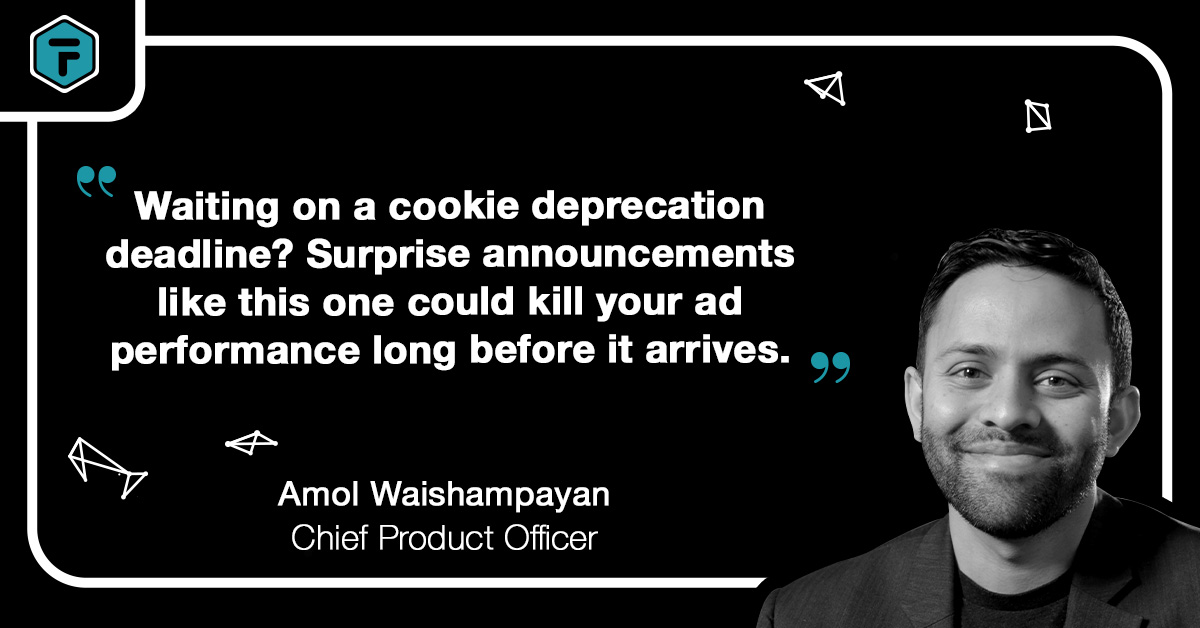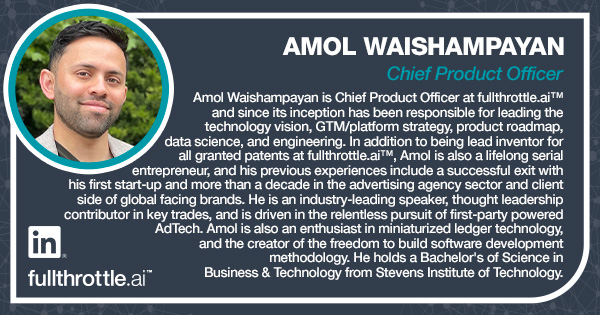
By: Amol Waishampayan
Google Is Drilling Out the Foundation. We’re Building a New One.
The recent news about Google introducing IP address proxies has sent ripples through the advertising industry and has brands rightly concerned about their ability to target the right audiences. I like to refer to Google’s privacy changes as “AdTech fracking" — drilling out and carving away the foundations that modern advertising was built on.
While this is undoubtedly a positive development for consumers, it presents clear challenges for advertisers. If you were waiting on a cookie deprecation deadline, surprise announcements like this one could kill your ad performance long before it arrives.
Key takeaways:
- Google IP address proxies challenge traditional advertising methods, making first-party data crucial for future marketing strategies.
- fullthrottle.ai's platform is built around privacy and user consent, offering a reliable solution for advertisers to generate and use first-party data.
- Advertisers can adapt to the changing AdTech environment by leveraging fullthrottle.ai's technology, which prioritizes user privacy and regulatory compliance.
Google's IP Address Proxies and What They Mean for Advertisers
Google plans to phase in its IP Protection feature to hide users' IP addresses, providing a level of privacy against cross-site tracking and IP-based profiling. This shift is part of a broader initiative to enhance user privacy. For advertisers, Google's IP address proxies will make traditional IP-based tracking and profiling methods less effective. Advertisers now face the challenge of adapting to new ways of audience targeting and measurement that are compliant with these privacy-centric changes.
Importance of First-Party Data As the Future of Marketing
Amid all this chaos, first-party data is emerging as the bedrock for future marketing strategies. Unlike third-party data, which is collected by domains other than the visited website, first-party data is collected directly from your customers. This data is not only more reliable but also aligns with privacy regulations like GDPR and CPRA. The benefits of using first-party data are clear: it's more accurate, less likely to be blocked by ad blockers, and you have full control over how it's used.
fullthrottle.ai's AdTech Gives You the Easy Button
fullthrottle.ai® is committed to prioritizing privacy and user consent. That’s why we don’t use IP addresses, mobile ad IDs, cookies, or any other third-party data collection method. Our platform is SOC 2 Type 2 certified and emphasizes transparency in our data collection practices. We offer an opt-in model, requiring users to provide explicit consent before their data can be collected or used. This approach ensures targeted, effective advertising campaigns that respect user privacy and comply with regulatory requirements.
We go beyond merely managing and organizing your existing first-party data. Our patented AdTech generates USPS-verified household addresses from your site visitors through opt-in location sharing, creating net-new data from your current site traffic. This approach not only enhances the accuracy and relevance of the data collected but also adheres to privacy standards, making sure users are in control. We help you build, market with, and measure your audience data, setting a solid foundation for future marketing strategies.
As Google and other walled gardens continue to shake the foundations of the advertising industry, fullthrottle.ai® offers a stable and reliable platform that prioritizes net-new, first-party data. Our technology enables advertisers to adapt quickly to privacy changes and launch into the future from a better foundation.
If this announcement is any indication, time is running out on third-party tracking faster than we thought. Book a demo and see how easy it is to adapt.




